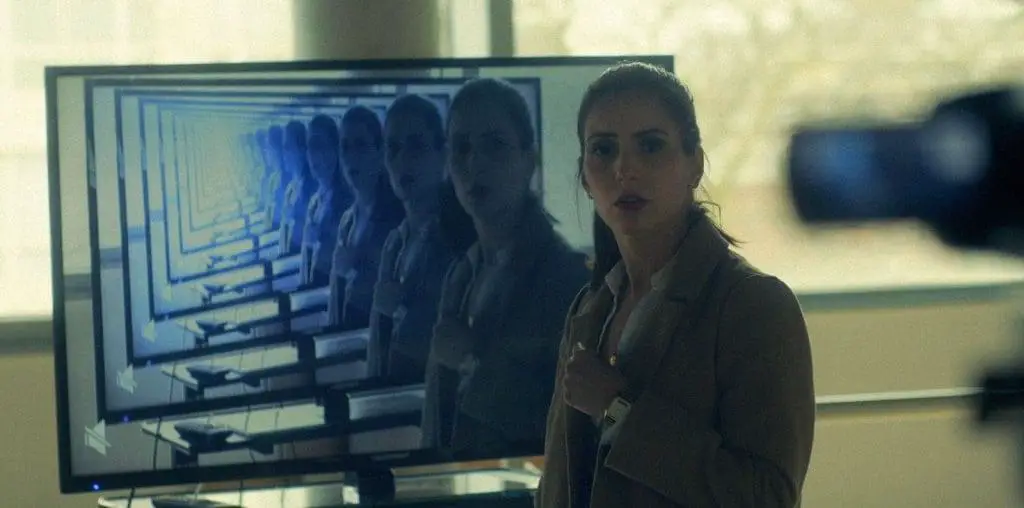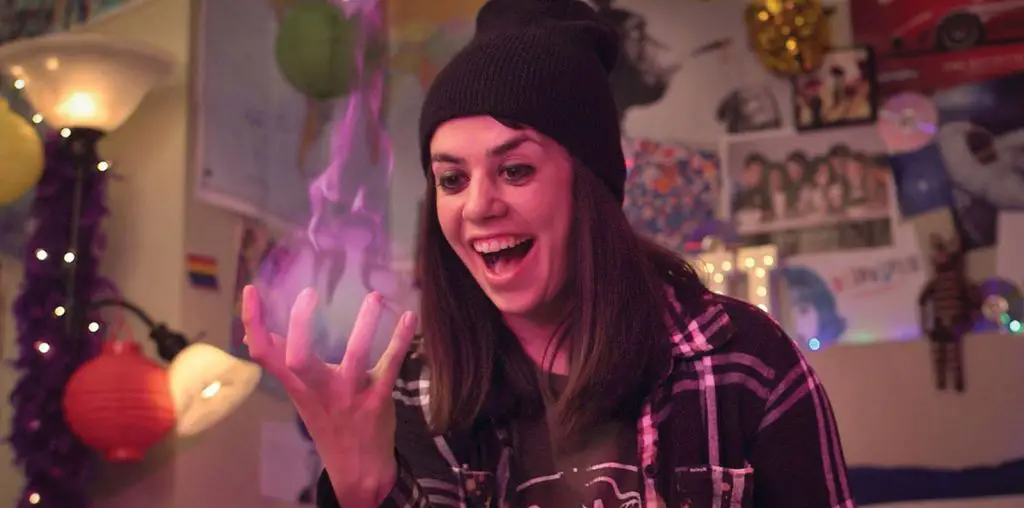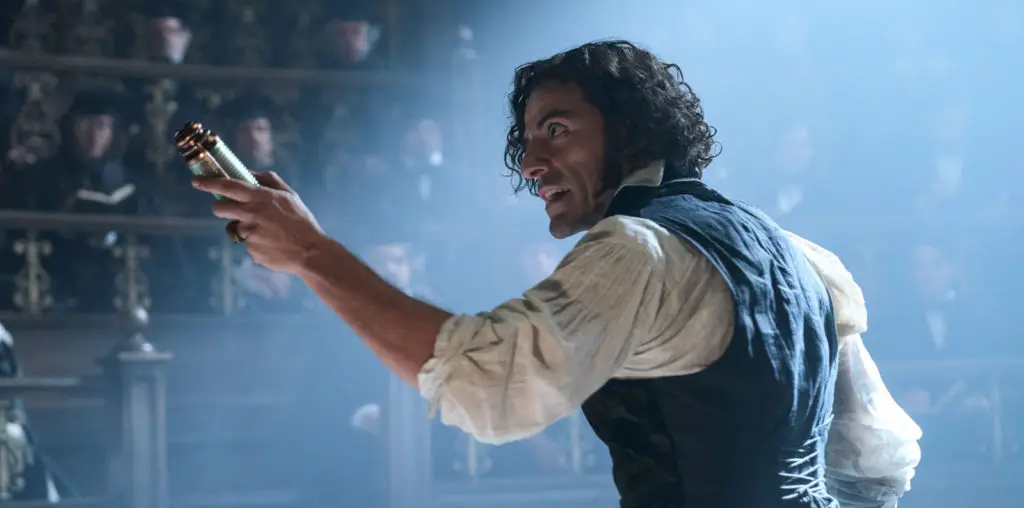
Tonia Mishiali’s Pause follows a middle-aged Cypriot woman, Elpida (Stella Fyrogeni), who has a decidedly miserable life. To start, Elpida’s husband Costas (Andreas Vasileiou) is a gruff, insensitive blue-collar worker who only talks to her when he wants to order her around. Far from being characterized by productivity, moreover, Elpida’s daily life epitomizes monotony: in contrast to Costas, she usually only leaves their apartment to go shopping or attend a weekly painting class. And if all this weren’t enough, Elpida also happens to be going through menopause.
Naturally, these unfortunate realities have collectively left Elpida, feeling deeply frustrated. Over the course of Pause, she copes with them by creating revenge fantasies in her mind. When Costas watches TV, for instance, Elpida imagines taking a pair of scissors and using them to cut the power cord. And when he yells at her for eating too much, she imagines throwing her dinner plate into his face.
For much of the film, Mishiali makes it clear that these fantasies of Elpida’s are just that: fantasies. Instead of actually cutting power cords, Elpida meekly allows her husband to continue watching football – and instead of actually throwing plates, she absorbs her husband’s criticisms about food without a word. Eventually, however, Mishiali decides to make the narrative more ambiguous. I don’t want to get into spoilers, but suffice it to say that it becomes increasingly difficult to tell whether scenes represent Elpida’s fantasies or things that actually happen.

“…a gruff, insensitive blue-collar worker who only talks to her when he wants to order her around.”
As you could probably guess by now, Pause is primarily interested in portraying the discrimination that women face in modern society. Part of the reason the film succeeds in this is the strength of Mishiali’s direction. Throughout the film, Mishiali is always able to “show” – not “tell” – how Elpida is feeling. The film’s reliance on long takes, for instance, elegantly conveys the rigid monotony of Elpida’s daily life. Similarly, the camera’s penchant for close-ups wordlessly emphasizes Elpida’s “trapped” feelings, suggesting that she feels oppressed and unable to change things in her life for the better.
Beyond its style, however, Pause deserves to be commended for how it portrays bigotry. In many films about prejudice – think last year’s Green Book – the antagonist (or antagonists) takes the form of an unabashed a*****e, a jerk who repeatedly says hateful things and openly relishes in making the protagonists feel miserable and unloved. Watching these films, you get the (wrongheaded) impression that such “haters” are the only things standing between the status quo and a prejudice-free, completely equal society.
One example of how Pause breaks these conventions comes in a scene midway through the film. In this scene, Costas decides to sell Mishiali’s car, even though Mishiali specifically told him not to. When she complains to him about this, he argues that “We need money to live by,” and he goes on to state, “Only I know what it’s like to work hard under the sun all day so that my wife and daughter can have a good life!”

“In general, Pause is a thoughtful, quietly provocative film that spotlights an individual whom most films relegate to the sidelines.”
With this statement, Mishiali hints at the underlying causes of the misogyny that Elpida deals with on a daily basis. Cruel and hateful as he often is, Costas himself is really only part of the problem. As illustrated by his claim that “Only I know what it’s like to work hard under the sun,” in fact, the real problem lies in society – specifically, a society that lionizes the “hardworking male breadwinner” and simultaneously expects women to remain slavishly subservient. It’s not the easiest thing to see, but this awareness of prejudice’s deeper structural roots sets Pause apart from the simplistic, Oscar-baity films about the prejudice that you typically get from Hollywood.
None of this is to say that Pause is perfect. Towards the end, the plot can get rather confusing, and some of Elpida’s fantasies feel a bit repetitive. But in general, Pause is a thoughtful, quietly provocative film that spotlights an individual whom most films relegate to the sidelines. And even if you find some parts of the film underwhelming or bewildering, Fyrogeni’s consistently absorbing performance more than makes up for their deficiencies.

Pause (2019) Directed by Tonia Mishiali. Written by Tonia Mishiali and Anna Fotiadou. Starring Stella Fyrogeni and Andreas Vasileiou.
8 out of 10


